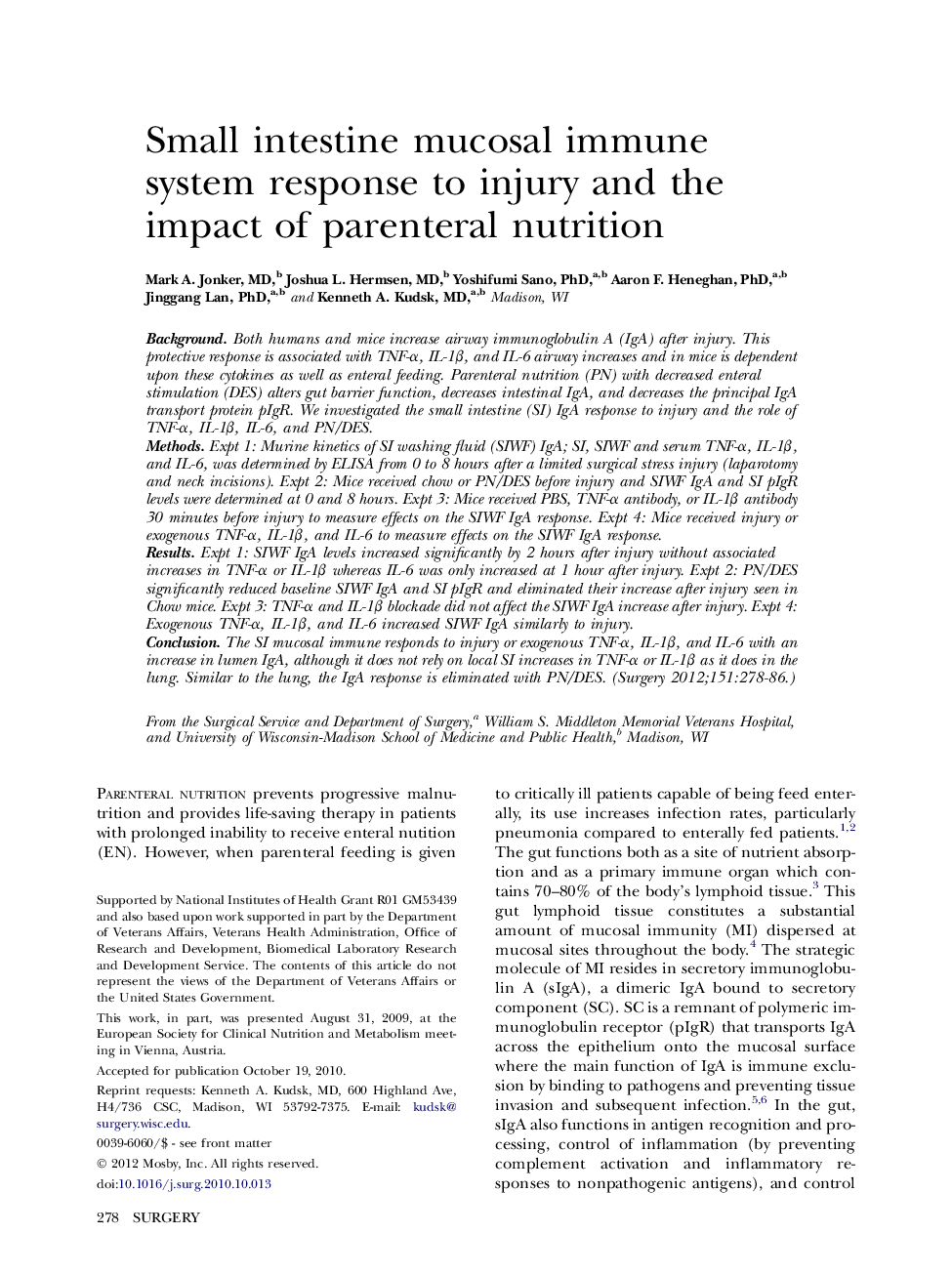| Article ID | Journal | Published Year | Pages | File Type |
|---|---|---|---|---|
| 4308210 | Surgery | 2012 | 9 Pages |
BackgroundBoth humans and mice increase airway immunoglobulin A (IgA) after injury. This protective response is associated with TNF-α, IL-1β, and IL-6 airway increases and in mice is dependent upon these cytokines as well as enteral feeding. Parenteral nutrition (PN) with decreased enteral stimulation (DES) alters gut barrier function, decreases intestinal IgA, and decreases the principal IgA transport protein pIgR. We investigated the small intestine (SI) IgA response to injury and the role of TNF-α, IL-1β, IL-6, and PN/DES.MethodsExpt 1: Murine kinetics of SI washing fluid (SIWF) IgA; SI, SIWF and serum TNF-α, IL-1β, and IL-6, was determined by ELISA from 0 to 8 hours after a limited surgical stress injury (laparotomy and neck incisions). Expt 2: Mice received chow or PN/DES before injury and SIWF IgA and SI pIgR levels were determined at 0 and 8 hours. Expt 3: Mice received PBS, TNF-α antibody, or IL-1β antibody 30 minutes before injury to measure effects on the SIWF IgA response. Expt 4: Mice received injury or exogenous TNF-α, IL-1β, and IL-6 to measure effects on the SIWF IgA response.ResultsExpt 1: SIWF IgA levels increased significantly by 2 hours after injury without associated increases in TNF-α or IL-1β whereas IL-6 was only increased at 1 hour after injury. Expt 2: PN/DES significantly reduced baseline SIWF IgA and SI pIgR and eliminated their increase after injury seen in Chow mice. Expt 3: TNF-α and IL-1β blockade did not affect the SIWF IgA increase after injury. Expt 4: Exogenous TNF-α, IL-1β, and IL-6 increased SIWF IgA similarly to injury.ConclusionThe SI mucosal immune responds to injury or exogenous TNF-α, IL-1β, and IL-6 with an increase in lumen IgA, although it does not rely on local SI increases in TNF-α or IL-1β as it does in the lung. Similar to the lung, the IgA response is eliminated with PN/DES.
